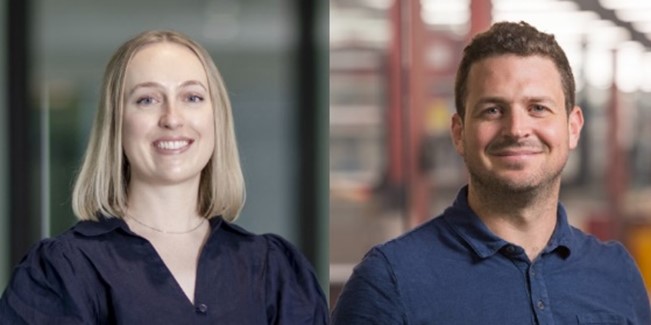
Growing 'mini-lungs' to find treatments to help kids breathe easier. What happens when cells stop talking?
National Stem Cell Foundation of Australia
National Stem Cell Foundation of Australia’s Metcalf Prizes announced today
Researchers working with stem cells to study lung diseases and cell-to-cell communication breakdown are the two winners of the 2024 Metcalf Prizes for Stem Cell Research, awarded by the National Stem Cell Foundation of Australia.
The Prizes will be formally awarded next week at the Australasian Society of Stem Cell Research Annual Scientific Meeting in Adelaide. Each will receive $60,000 to help further their research.
Scientists available for interview. Full profiles available here
Download images here
_________________________________________________________________________________________
Growing ‘mini-lungs’ to find treatments to help kids breathe easier
Dr Rhiannon Werder is growing ‘mini-lungs in a dish’ that mimic the complexity and function of lungs in living people.
The Team Leader at Murdoch Children’s Research Institute has already used stem cell-derived lung cells to create models of human genetic diseases, like cystic fibrosis, and acquired lung diseases and infections, such as the common cold.
Now she plans to grow 3 dimensional models of human lung tissue, or 'mini-lungs', in a dish to better investigate respiratory infections and drive new treatment discoveries.
How do cells work together to create organs?
And what happens when they stop talking?
Dr William Roman is growing human muscles on a chip. He’s using them to understand how the skeletal muscle cell, the largest cell in a human body, connects with neurons and tendons to create working muscles.
William is using his ‘mini-muscles’ as a model to understand the fundamental principles of intercellular communication, and hopes this work will enable researchers to better mimic organs outside the body.
He is also studying what happens when communication between neurons and muscle cells breaks down as we age, and in degenerative diseases such as motor neuron disease.
His team’s research at Australian Regenerative Medicine Institute, based at Monash University, will lead to stem cell technologies for disease modelling, drug screening, cellular agriculture, and biorobotics.
“Rhiannon and William’s work illustrate the power of stem cells to create living, functioning 3D models of healthy and diseased human tissues and organs, from mini-lungs to mini-muscles,” says Dr Graeme Blackman AO, the chairman of the Foundation.
The awards are named for the late Professor Donald Metcalf AC who, over a 50-year career, helped transform cancer treatment and transplantation medicine, paving the way for potential stem cell therapy in the treatment of many other conditions.
About the National Stem Cell Foundation of Australia
The NSCFA is an ATO-registered, tax-deductible health promotion charity dedicated to promoting the study and responsible use of stem cells to reduce the burden of disease.
The Foundation’s activities include:
- supporting research that pursues cures for as-yet-untreatable diseases;
- building a community of people with a shared interest in stem cell science; and
- providing the Australian public with objective, reliable information on both the potential and risks of stem cell medicine.
The Foundation is led by an expert volunteer Board, with a diversity of scientific, medical and governance experience. The Chairman is Dr Graeme Blackman, AO, FTSE, FAICD.
The Board consults with leading stem cell scientists before committing funds to research and education initiatives. More at: www.stemcellfoundation.net.au
Contact details:
Shelley Thomas, Science in Public, 0416 377 444, shelley@scienceinpublic.com.au
Tanya Ha, Science in Public, 0404 083 863, tanya@scienceinpublic.com.au
